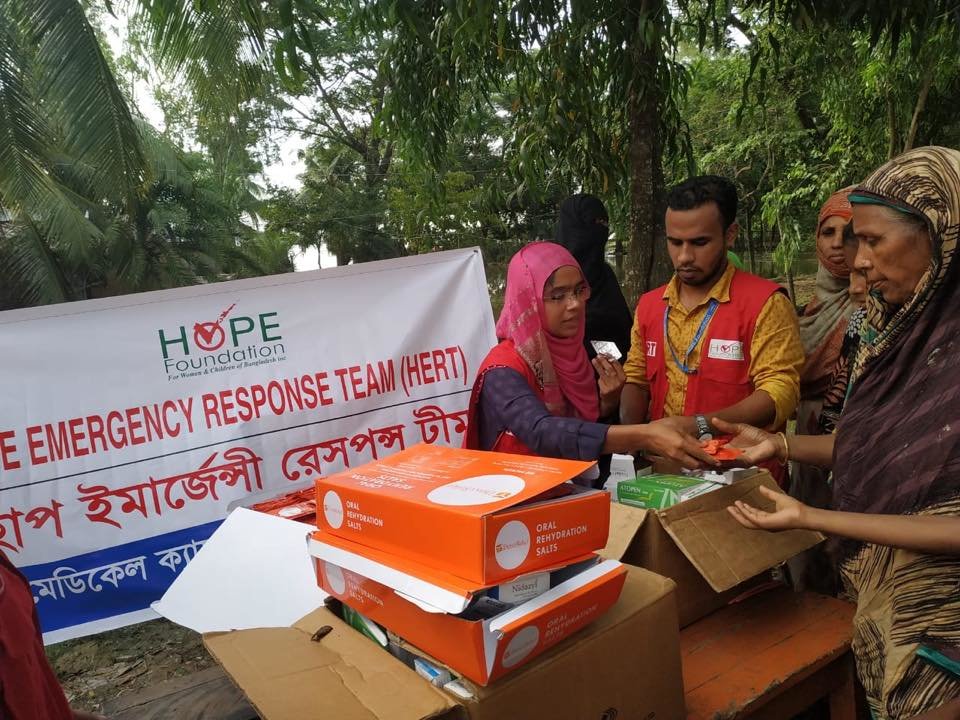By Johanna Hansing | Program Manager
Dear friend,
Im happy to share with you more information about this project.
HOPE has Emergency Response/Mobile Medical Teams working to train teams of 40 local health care personnel, comprised of doctors, nurses, midwives, medical students and village practitioners. Teams are training for triage and mass casualty triage, first aid (including treatment for snake bites, expected to increase with flooding); treatment of communicable diseases, emergency childbirth deliveries and psychological first aid, and more. These teams will help provide critical support during monsoon season, when heavy rains are expected to cause flooding likely to increase illness, injury and heavy casualties.
The primary objective of the MMTs is to deliver immediate life-saving health services and facilitate emergency referrals in the event of an emergency. In addition, MMTs may also ensure the continuation of critical health services for affected populations in emergency situations that have resulted in destruction or closure of static health facilities. As such, the MMTs will be limited to emergency medical services, however, the MMTs will coordinate with and link to other sectors and partners to promote multi-sector service delivery for crisis affected populations.
The mentioned field hospital is strategically located within the largest Rohingya camp. Prior to the establishment of the facility, health services were prohibitively far for sick Rohingya, who had to travel 4-5 miles on foot to reach a clinic – a journey that would be treacherous during heavy rains. Now, they can access care 24/7 at the field hospital.
As the number of refugees grows in southern Bangladesh, the health status of the refugee population and surrounding communities is at great risk from overcrowding and potential for disease outbreaks, this is one of the reasons why im highlighting this important actions taken by HOPE.
With rains starting to intermittently flood the Rohingya refugee camps, HOPE Foundation and other partners are further strengthening preventive and contingency measures to minimize the health impact of monsoons for the nearly 1.3 million vulnerable populations in Cox’s Bazar.
As part of the contingency measures, HOPE placed midwives 24/7 in all HOPE health facilities covering SRH needs for pregnant women living in the affected area.
You can help us today!!!
Thank you for reading.
Project reports on GlobalGiving are posted directly to globalgiving.org by Project Leaders as they are completed, generally every 3-4 months. To protect the integrity of these documents, GlobalGiving does not alter them; therefore you may find some language or formatting issues.
If you donate to this project or have donated to this project, you can receive an email when this project posts a report. You can also subscribe for reports without donating.
Support this important cause by creating a personalized fundraising page.
Start a Fundraiser